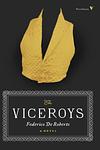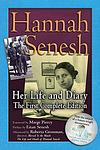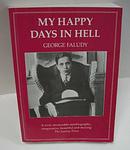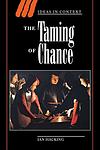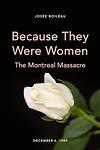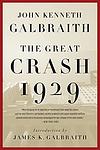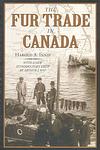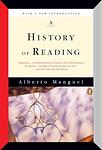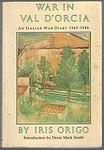The Greatest Hungarian, Italian, Canadian "History" Books of All Time
Click to learn how this list is calculated.
This list represents a comprehensive and trusted collection of the greatest books. Developed through a specialized algorithm, it brings together 305 'best of' book lists to form a definitive guide to the world's most acclaimed books. For those interested in how these books are chosen, additional details can be found on the rankings page.
Genres
The category of "History" in books refers to the study and interpretation of past events, societies, and cultures. It encompasses a wide range of topics, including political, social, economic, and cultural developments, as well as the lives of individuals and groups who have shaped the course of history. History books can be written from various perspectives and may focus on specific time periods, regions, or themes. They aim to provide readers with a deeper understanding of the past and its impact on the present.
Countries
Date Range
Reading Statistics
Click the button below to see how many of these books you've read!
Download
If you're interested in downloading this list as a CSV file for use in a spreadsheet application, you can easily do so by clicking the button below. Please note that to ensure a manageable file size and faster download, the CSV will include details for only the first 500 books.
Download-
1. Dialogue Concerning the Two Chief World Systems by Galileo
This scientific work presents a series of discussions between three characters, each representing a different perspective on the cosmological theories of the time. Throughout the dialogue, the characters debate the merits of the Ptolemaic geocentric system, which asserts that the Earth is the center of the universe, and the Copernican heliocentric system, which proposes that the Sun is the center. The author uses these discussions to subtly argue in favor of the Copernican system, challenging the traditional religious and scientific beliefs of his time.
The 672nd Greatest Book of All Time -
2. Fateless by Imre Kertész
"Fateless" is a harrowing account of a Hungarian Jewish boy's experiences in Nazi concentration camps during World War II. The protagonist is sent to Auschwitz, then Buchenwald, and finally to a factory in Zeitz, enduring brutal conditions and witnessing unimaginable horrors. Despite his experiences, he maintains a detached, almost indifferent perspective, focusing on the mundane aspects of life in the camps, which further highlights the absurdity and horror of the situation. The novel explores themes of identity, survival, and the arbitrary nature of fate.
The 686th Greatest Book of All Time -
3. Lives of the Artists by Giorgio Vasari
"Lives of the Artists" is a comprehensive collection of biographies of the most significant Italian artists from the 13th to the 16th centuries. The book provides a detailed overview of the artists' lives, their works, and their contributions to the art world. It includes the biographies of renowned artists like Leonardo da Vinci, Michelangelo, and Raphael, among others. The author's personal acquaintance with some of these artists lends a unique perspective, making the book a valuable historical document.
The 1001st Greatest Book of All Time -
4. Danube by Claudio Magris
This literary work is a rich tapestry that combines travelogue, history, and cultural analysis, following the journey of the river Danube from its sources in the heart of Europe to its delta at the Black Sea. As the narrative meanders through various countries, it delves into the complex history and diversity of the regions along the riverbanks, reflecting on the interplay of different cultures, languages, and peoples. The book is a contemplative exploration of the European spirit, examining the river as both a physical and metaphorical conduit through which ideas and influences have flowed, shaping the continent's past and present.
The 1321st Greatest Book of All Time -
5. The Great Transformation by Karl Polanyi
The book in question is a seminal work in economic and social history that examines the development and impact of the modern market economy on global societies. It argues that the rise of market capitalism in the 19th century fundamentally transformed social structures and human relationships, with the commodification of land, labor, and money turning them into tradable goods. This transformation led to social dislocation and crises, prompting a counter-movement for social protection and the rise of the welfare state. The author challenges the idea that the market economy is a natural and inevitable form of social organization, instead presenting it as a constructed system with profound effects on the fabric of society.
The 1403rd Greatest Book of All Time -
6. Kaputt by Curzio Malaparte
"Kaputt" is a semi-autobiographical novel that portrays the bleak and disturbing experiences of the author during World War II. The narrative is set in Eastern Europe and offers a vivid depiction of the war's atrocities, including the Holocaust, as seen through the eyes of a war correspondent. The book is known for its surreal and grotesque imagery, combined with the author's sharp and cynical observations of the war's impact on humanity.
The 1500th Greatest Book of All Time -
7. The Drowned and the Saved by Primo Levi
This book is a deeply moving exploration of the Holocaust, written by a survivor. It delves into the horrifying experiences at Auschwitz, examining the psychological impact on the prisoners, the brutal behavior of the guards, and the complex moral dilemmas faced by both. The author also discusses the concept of memory and its unreliability, especially in the context of such traumatic events, and analyzes the ways in which the Holocaust has been represented and remembered in society. The book serves as a profound meditation on the human condition under extreme circumstances.
The 1827th Greatest Book of All Time -
8. Prison Notebooks by Antonio Gramsci
The book in question is a collection of intellectual and critical writings composed by an influential Marxist thinker while incarcerated by a Fascist regime. These notebooks delve into a wide array of subjects, including political theory, sociology, critical theory, and cultural analysis. Central to the work is the concept of cultural hegemony, which explores how state power and societal norms are maintained not just through force but also through cultural institutions and practices that shape public consciousness. The author's reflections on power, class, and ideology have had a profound impact on contemporary political and social thought, offering a nuanced understanding of the superstructures that govern societal dynamics and the potential for transformative change.
The 2018th Greatest Book of All Time -
9. The Viceroys by Federico De Roberto
"The Viceroys" is a historical novel set in 19th century Sicily, during the Italian unification. The story revolves around the aristocratic Uzeda family, who are trying to retain their power and influence in the changing political landscape. The narrative explores themes of power, corruption, and the decline of the aristocracy through the lens of this manipulative and scheming family. The book is a critique of the social and political system of the time.
The 2443rd Greatest Book of All Time -
10. Hannah Senesh by Hannah Senesh
This book is a collection of the diaries, letters, and poems of a young Jewish woman who emigrated from Hungary to Palestine in the 1930s, driven by her Zionist beliefs. She joined the Haganah and later volunteered for a daring military operation to parachute into Nazi-occupied Europe during World War II, with the aim of aiding Allied forces and rescuing Hungarian Jews from the Holocaust. Her writings reflect her courage, literary talent, and the depth of her commitment to her cause. Tragically captured, tortured, and eventually executed by the Nazis, she became an enduring symbol of bravery and sacrifice in the face of tyranny.
The 3462nd Greatest Book of All Time -
11. My Happy Days In Hell by György Faludy
The book is an autobiographical account of a Hungarian poet's life during the mid-20th century, chronicling his experiences from his carefree youth through the rise of fascism and his subsequent imprisonment in a brutal labor camp. It is a tale of intellectual passion, political upheaval, and the resilience of the human spirit in the face of totalitarianism. The narrative captures the author's journey through a Europe ravaged by war and political strife, his encounters with notable literary figures, and his unyielding commitment to his beliefs and to poetry, even as he endures the hardships and absurdities of a communist regime.
The 4487th Greatest Book of All Time -
12. I Have Lived a Thousand Years by Livia Bitton-Jackson
This memoir tells the harrowing story of a 13-year-old Jewish girl's survival during the Holocaust. The narrative follows her life from her quiet existence in Hungary through the horrors of Auschwitz and other concentration camps, and finally to her liberation and the struggle to rebuild her life in the aftermath of such trauma. The memoir is a powerful testament to human resilience and the will to survive against all odds.
The 4773rd Greatest Book of All Time -
13. The Taming of Chance by Ian Hacking
"The Taming of Chance" delves into the evolution of the concept of probability and its societal implications. The book takes the reader through the historical progression of probability and statistics, illustrating how they have shaped and been shaped by societal norms. The author highlights the profound impact of this mathematical concept on various aspects of life, including law, science, and philosophy, and how it has fundamentally changed our perception of the world.
The 5104th Greatest Book of All Time -
14. The Montreal Massacre by Louise Malette and Marie Chalouh
The book provides a detailed account of a tragic event that took place at an engineering school in Montreal, where a gunman targeted female students, resulting in the loss of numerous lives. The authors delve into the societal and cultural factors that may have contributed to the perpetrator's motivations, examining issues of gender-based violence and misogyny. Through interviews, personal reflections, and analysis, the book seeks to honor the victims and explore the broader implications of the event for Canadian society and the ongoing struggle for gender equality.
The 5174th Greatest Book of All Time -
15. The Book Of The Courtier by Baldassare Castiglione
This Renaissance classic is a seminal work on etiquette and courtly manners, presenting an idealized vision of the perfect gentleman and lady at the courts of Italy. Through a series of dialogues set over four evenings, the book explores the attributes of a well-rounded courtier, emphasizing skills such as martial arts, physical grace, and intellectual pursuits, alongside the importance of moral virtue and the art of conversation. The text also delves into the complex interplay of love, the role of women in court, and the philosophical underpinnings of what it means to live a noble life, ultimately providing a guide to the refined behavior expected in aristocratic circles of the time.
The 5277th Greatest Book of All Time -
16. The Great Crash, 1929 by John Kenneth Galbraith
The book provides a detailed analysis of the economic factors and decisions that led to the Wall Street crash of 1929, which precipitated the Great Depression. It examines the speculative bubble that grew in the preceding years, driven by overly optimistic investments in the stock market, and the lack of regulation that allowed for rampant financial speculation. The author delves into the aftermath of the crash, exploring its profound effects on the economy and society, and critiques the responses of financial and political leaders. The narrative serves as both a historical account and a cautionary tale about the dangers of financial excess and the importance of regulatory oversight.
The 5517th Greatest Book of All Time -
17. The Fur Trade In Canada by Harold A. Innis
"The Fur Trade in Canada" examines the pivotal role of the fur trade in the development of Canada, tracing its impact from the early days of French and British exploration and trade with Indigenous peoples through to its influence on economic and regional development. The book delves into the complex interactions between European traders and Indigenous communities, and how the demand for beaver pelts in Europe shaped the economic, social, and political landscapes of what would become Canada. The author uses extensive economic and historical analysis to argue that the fur trade was not merely an economic venture but a crucial factor in the formation of the Canadian nation.
The 5947th Greatest Book of All Time -
18. The Warrior's Honor: Ethnic War and the Modern Conscience by Michael Ignatieff
The book explores the moral and ethical challenges faced by modern societies when confronted with ethnic conflicts and wars. It delves into the complexities of humanitarian intervention, the role of the media in shaping public perception, and the struggle to reconcile the principles of human rights with the brutal realities of ethnic violence. Through a series of case studies and philosophical reflections, the author examines the tension between the universal claims of morality and the particular loyalties of kinship and nationality, questioning the capacity of moral conscience to mediate in conflicts where deep-seated cultural and ethnic animosities are at play.
The 6657th Greatest Book of All Time -
19. A History Of Reading by Alberto Manguel
This book offers a captivating exploration of the evolution of reading throughout the centuries, tracing its transformation from a privileged art practiced by a select few to a widespread pastime enjoyed by many. The narrative delves into the intimate relationship between readers and texts, examining how reading practices have shaped human history, culture, and personal lives. Through a tapestry of anecdotes, analysis, and personal reflections, the work celebrates the reader's role in giving meaning to the written word and considers the future of reading in the digital age.
The 6825th Greatest Book of All Time -
20. The Expulsion Of The Triumphant Beast by Giordano Bruno
"The Expulsion of the Triumphant Beast" is a philosophical treatise that delves into the author's vision of the universe and the nature of knowledge. It is an allegorical work that critiques the religious and philosophical dogmas of its time, advocating for a pantheistic conception of God and an infinite universe. The book challenges the Aristotelian cosmology and the dominance of the Catholic Church, promoting a new understanding of the cosmos where God is present in all things, and all religions contain a portion of the universal truth. The author's ideas were revolutionary, contributing to the development of modern thought, but also controversial, leading to significant conflict with the religious authorities of the era.
The 7168th Greatest Book of All Time -
21. Notebooks by Leonardo da Vinci
The book is a compilation of writings and sketches from one of history's most brilliant minds, offering a window into the intellectual pursuits and creative process of the Renaissance polymath. It encompasses a wide array of subjects, from anatomy to hydraulics, from painting to engineering, revealing the author's insatiable curiosity and his systematic approach to observation and inquiry. The collection is not only a testament to the author's genius but also a source of inspiration and insight into the fusion of art and science during the Renaissance period.
The 7168th Greatest Book of All Time -
22. The Wine Dark Sea by Leonardo Sciascia
In "The Wine Dark Sea," readers are presented with a collection of short stories that delve into the complexities of Sicilian life, exploring themes of justice, truth, and the human condition. The narrative weaves through tales of ordinary people confronted with extraordinary situations, often involving crime and moral dilemmas. The author's sharp observations and subtle irony highlight the intricate relationship between the individual and the often-oppressive societal structures, painting a vivid picture of a land steeped in beauty and contradiction, where the line between right and wrong is as blurred as the horizon on the titular wine-dark sea.
The 7168th Greatest Book of All Time -
23. On The Historical Novel by Alessandro Manzoni
The book in question is a critical examination of the historical novel as a literary genre, exploring the challenges and responsibilities of blending historical facts with fictional narrative. The author delves into the intricacies of accurately representing historical events and characters while crafting a compelling story that remains true to the era it depicts. Through a series of essays, the work discusses the importance of historical context, the role of the author's perspective, and the balance between didacticism and entertainment in creating novels that not only depict the past but also resonate with contemporary readers. The text serves as both a guide for writers of historical fiction and a critique of the genre, offering insights into the ethical and artistic considerations involved in writing about history.
The 7168th Greatest Book of All Time -
24. Journal of the Voyage to the Pacific by Alexander Mackenzie
"Journal of the Voyage to the Pacific" is a travelogue that documents the author's journey from Great Slave Lake in Northwest Territories, Canada, to the Pacific Ocean. The author, an explorer, details the challenges and experiences he encountered during the first recorded transcontinental crossing of North America north of Mexico. The book provides an insightful view into the landscapes, indigenous cultures, and natural history of the late 18th century North American continent.
The 8714th Greatest Book of All Time -
25. War In Val D'orcia by Iris Origo
"War in Val d'Orcia" is an enthralling diary that provides a vivid account of life in the Tuscan countryside during World War II. Written by an Englishwoman living in Italy, the diary spans the years 1943-1944, detailing the daily challenges faced by local peasants, the author's efforts to aid escaped Allied prisoners of war, and the impact of the German occupation on the region. The narrative captures the resilience and courage of the local community amidst the horrors of war, offering a unique and deeply personal perspective on the broader historical events unfolding around them.
The 8726th Greatest Book of All Time
Reading Statistics
Click the button below to see how many of these books you've read!
Download
If you're interested in downloading this list as a CSV file for use in a spreadsheet application, you can easily do so by clicking the button below. Please note that to ensure a manageable file size and faster download, the CSV will include details for only the first 500 books.
Download







